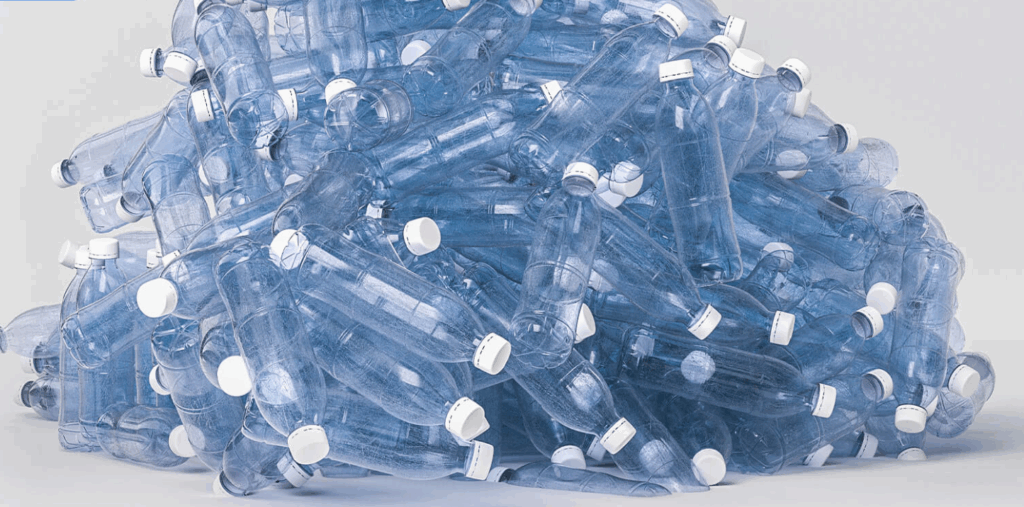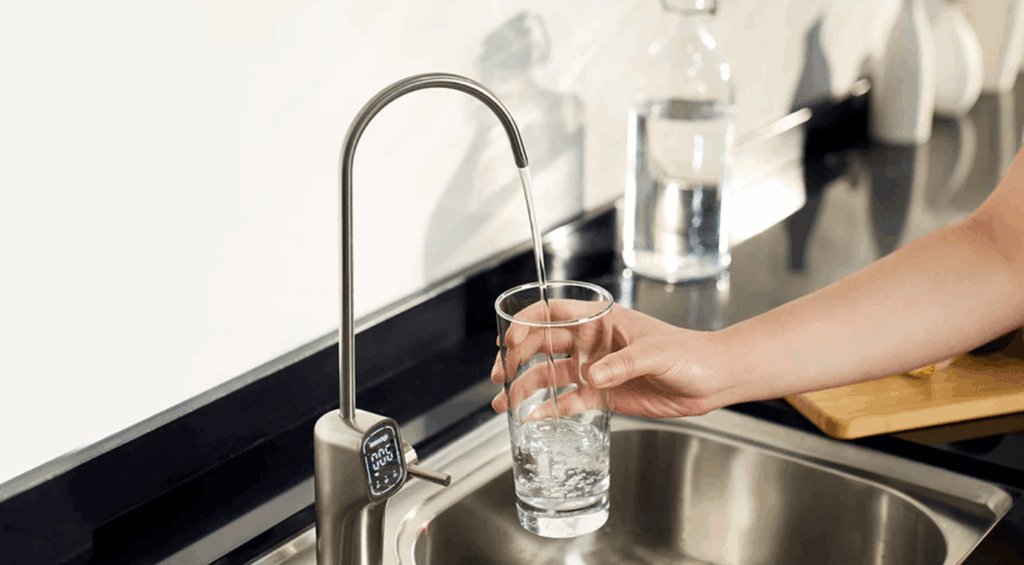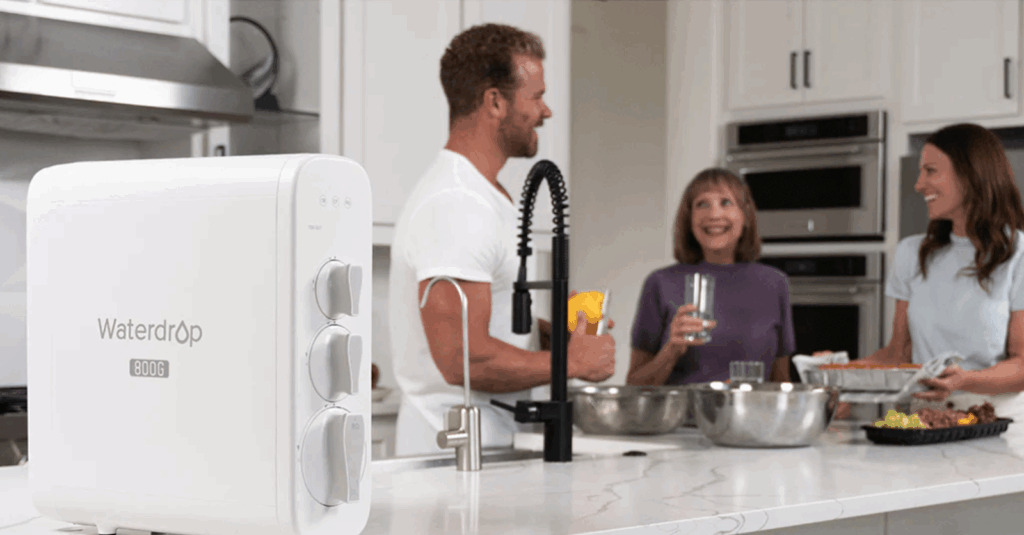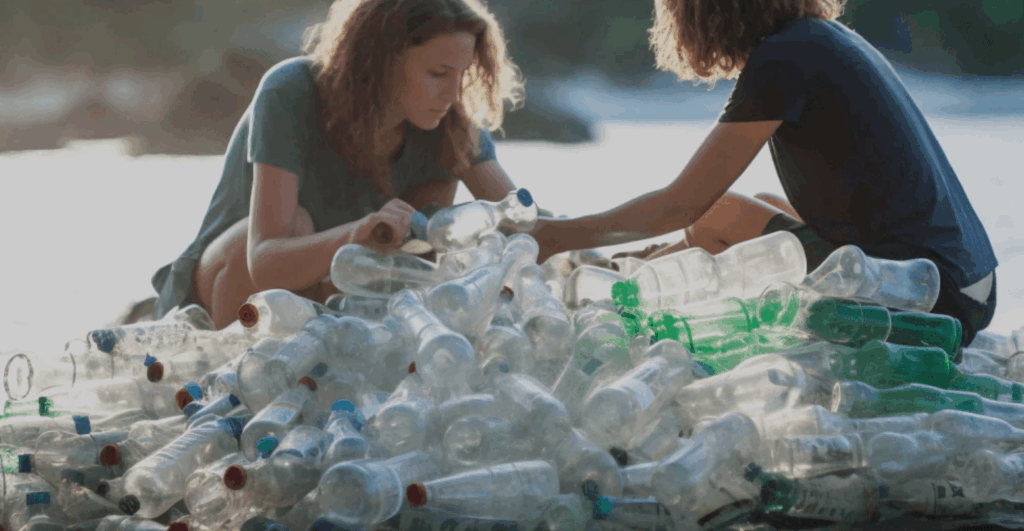For many Americans, bottled water represents convenience and purity, a quick grab at the grocery store, gym, or during travel. But behind every bottle of water lies a hidden environmental cost that most people never see.
From resource extraction to plastic waste and carbon emissions, the bottled water industry has a profound impact on the planet. Fortunately, more households are now realizing that a reliable home water filtration offers a sustainable, healthier, and more economical alternative.
Why Is Bottled Water an Environmental Concern?
The United States is one of the largest consumers of bottled water in the world. According to the Container Recycling Institute, Americans purchase more than 60 million plastic water bottles every day, and nearly 80% end up in landfills, oceans, or the environment rather than being recycled.
This massive consumption creates a series of environmental challenges that extend far beyond the visible waste.
Plastic Production and Resource Depletion
Bottled water production begins with the extraction of raw materials—primarily crude oil and natural gas used to make polyethylene terephthalate (PET) plastic. Manufacturing just one liter of bottled water can require up to three liters of water and significant energy inputs.
Dr. Jonathan Doyle, a Ph.D. in Chemistry who owns a water testing laboratory in Texas, explains, “The energy and water required to produce a single-use plastic bottle are often greater than the amount of water it holds. This imbalance creates a chain of waste that starts before the bottle ever reaches the consumer.”
These production demands contribute to greenhouse gas emissions, resource depletion, and pollution across manufacturing sites.
What Happens After You Drink Bottled Water?

Once the water is consumed, the plastic bottle begins its second life—often as waste. Even though PET plastic is technically recyclable, most bottles never make it to recycling facilities. Instead, they:
- End up in landfills where they take over 400 years to decompose.
- Break down into microplastics that enter soil, rivers, and oceans.
- Release greenhouse gases as they degrade under sunlight.
According to the U.S. Environmental Protection Agency (EPA), plastic waste now accounts for over 12% of total municipal solid waste, and bottled water packaging contributes a significant portion of that number.
Over time, microplastics infiltrate the environment and, eventually, the food chain—appearing in seafood, salt, and even tap water.
Carbon Emissions: The Hidden Cost of Convenience
Transporting bottled water from production plants to stores adds another environmental burden. Trucks, ships, and airplanes move billions of bottles across long distances each year, releasing vast amounts of carbon dioxide (CO₂) into the atmosphere.
A 2021 study published in Science of the Total Environment estimated that bottled water’s global carbon footprint is up to 3,500 times higher than that of tap water. For perspective, that’s like driving a car for several miles just to drink one bottle of water.
The environmental cost doesn’t stop there. Energy is required to cool bottled water in refrigerators and vending machines, and additional packaging materials—labels, caps, shrink wraps—add to the overall waste stream.
How Water Filtration Helps Reduce Environmental Impact

The testing data from Dr. Jonathan Doyle’s laboratory found that several bottled water samples contained trace levels of microplastics, suggesting contamination during the bottling or storage process.
Fortunately, consumers today have better choices. Home water filtration systems offer a cleaner, more sustainable, and cost-effective alternative to bottled water. Let’s explore how.
1. Eliminating Single-Use Plastic Waste
Installing a water filtration system at home allows families to drink directly from the tap without relying on disposable bottles. This shift alone can prevent thousands of plastic bottles from entering the waste stream each year.
Reusable glass or stainless steel bottles pair perfectly with filtered water, helping Americans reduce plastic dependency while maintaining hydration on the go.
2. Lower Carbon Footprint
Unlike bottled water, filtration systems don’t require manufacturing, bottling, or transportation. Once installed, they use minimal energy and produce a negligible carbon footprint compared to the life cycle of bottled water.
A 2022 study by the Pacific Institute found that filtered tap water can reduce household CO₂ emissions by up to 85% compared to bottled alternatives.
3. Healthier and Better-Tasting Water
Modern filtration technology doesn’t just remove contaminants—it enhances taste and quality. Systems such as Waterdrop’s Reverse Osmosis (RO) series can eliminate over 1,000 types of contaminants, including chlorine, lead, and PFAS, while retaining beneficial minerals for balanced flavor.

Waterdrop’s compact under-sink units, like the G3P800 Remineralization RO System, beyond purification, their remineralization technology restores essential minerals such as calcium, magnesium, and potassium.
These minerals not only improve the water’s natural taste and texture but also help maintain your body’s electrolyte balance and support bone health.
The Broader Benefits of Home Water Filtration
Beyond sustainability, switching from bottled water to a home filtration system delivers everyday benefits that contribute to a better lifestyle.
- Cost Efficiency: The average American household spends over $400 a year on bottled water. A filtration system quickly pays for itself within months.
- Reduced Storage and Waste: No more bulky cases of bottled water taking up pantry or garage space.
- Peace of Mind: Homeowners gain control over their water quality by knowing exactly what filtration system they’re using.
As Dr. Doyle summarizes, “When people shift from bottled to filtered water, they’re not just making a personal health choice—they’re making a global environmental one.”
A Sustainable Future Starts at the Tap
Addressing the environmental impact of bottled water doesn’t require drastic changes—it starts with simple, informed choices. Choosing filtration over bottled water aligns with both environmental responsibility and personal wellness.
For American households striving to live more sustainably, the tap can become a source of empowerment. Each refillable bottle filled with filtered water represents less plastic in the ocean, less CO₂ in the atmosphere, and a healthier planet for future generations.
Whether you’re a homeowner redesigning your kitchen or a family looking to reduce waste, investing in a water filtration system is a practical and meaningful step toward sustainability.

